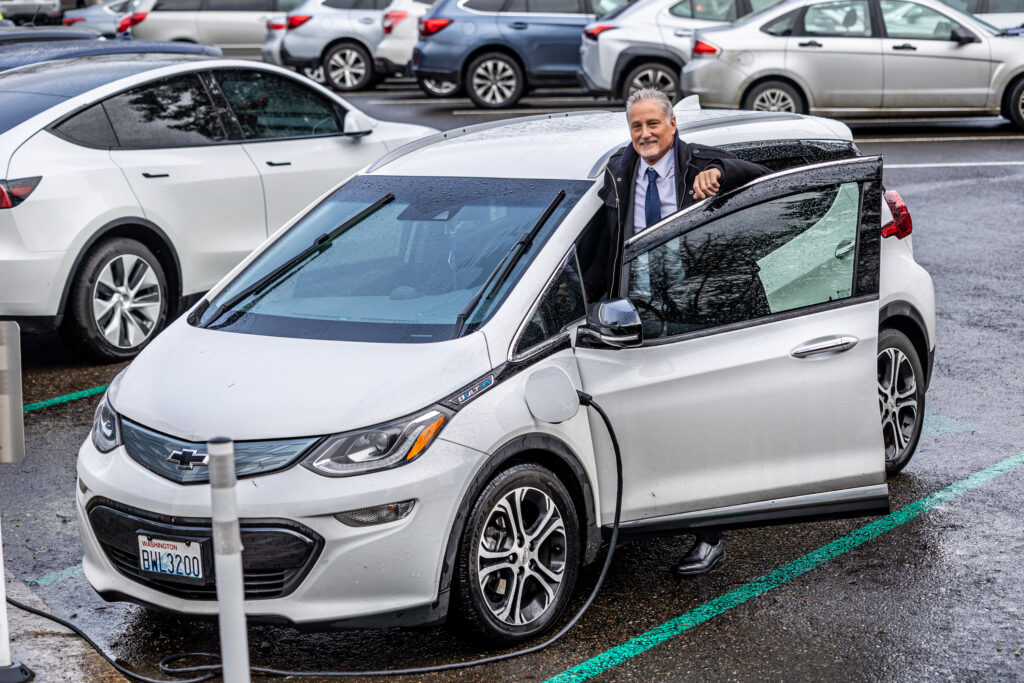Sen. Jeff Wilson charges his 2017 Chevy Bolt on the Capitol Campus in Olympia.
OLYMPIA – A bill from Sen. Jeff Wilson to study electric vehicle fires and determine best firefighting practices has won unanimous support from the Washington Legislature and is on its way to the governor’s desk for final consideration.
Senate Bill 5812 launches a study of special hazards when EVs go into flame mode, making recommendations for fire crews, law enforcement agencies, tow-truck operators and storage yards.
Wilson, R-Longview, said battery fires are a big fear for EV owners and pose an obstacle to public acceptance. He should know. He drives a Chevy Bolt and needed to have his battery replaced under a recall, after a number of batteries caught fire.
“We’ve put the cart in front of the EV,” he said. “Government is trying its best to encourage people to buy electric, and I think everyone assumed this technology was perfected. But when an EV battery catches fire, there isn’t a fire extinguisher made that can put it out. And fire departments sometimes are forced to decide the best thing they can do is stand back and let it burn.”
In committee testimony, firefighters and tow-truck operators said battery fires are a small but growing problem as electric vehicles gain market share. Hazards include high voltage, intense heat, toxic fumes and a tendency to reignite hours or even days after the fire is doused. Manufacturers have different and sometimes contradictory recommendations. Roadside fires pose special challenges. Fire trucks typically carry 500 gallons of water, but putting out an EV fire can require 6,000 gallons or more.
The Senate passed Wilson’s bill 49-0 on Feb. 6, and the House followed 96-0 on March 1. The measure places the study under the direction of the Washington State Patrol. Wilson said the goal is to establish procedures and recommend firefighting equipment that will be needed for the electric future. “We all want to drive off into the sunset, and not into a ball of fire,” he said.









